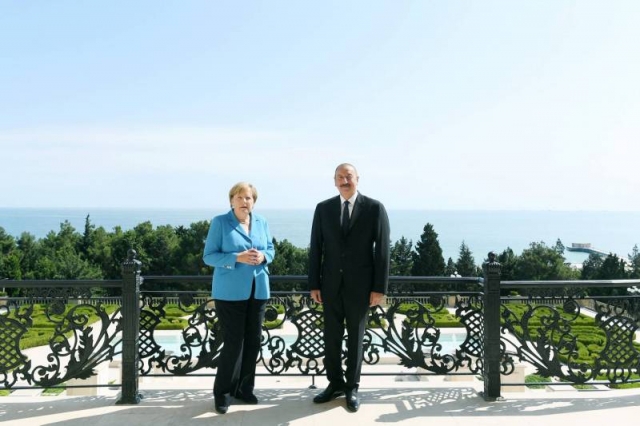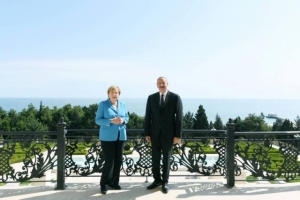Merkel’s Visit to South Caucasus in a Nutshell
On August 23, German Chancellor Angela Merkel began her South Caucasus trip in Georgia, before moving on to Armenia and then Azerbaijan.
The German Chancellor organized this diplomatic trip shortly after she met the Russian President Vladimir Putin near Berlin in Germany. Economic and geopolitical issues were high on her agenda.
Germany Calls for Peaceful Solutions in the Region
Each South-Caucasian country faces territorial disputes with its neighbors, for instance in the form of gray-zones, in which Germany and the European Union mght play a key role. Among these issues, Russian-backed breakaway Abkhazia, so called South Ossetia and the Nagorno-Karabakh region were burning topics for the German delegation to discuss.
Chancellor Merkel said that the current situation in Georgia is “unfair”, and highlighted that even though Putin knows her view on Georgia and Ukraine, little has been done. She reaffirmed her support for Georgia’s territorial integrity and sovereignty and noted, "Germany will do its best to help manage a peaceful resolution to the conflict."
On August 24, Merkel joined a patrol of the EU Monitoring Mission (EUMM) along the Administrative Boundary Line with de facto Republic of South Ossetia.
She then headed to Armenia and discussed in particular the territorial dispute with Azerbaijan. The German leader said during her visit that Germany could be a mediator between both countries to resolve peacefully the Nagorno-Karabakh conflict.
She reaffirmed this will in the Azerbaijani capital, Baku, by telling journalists that "Germany wants to help find peaceful solutions."
Duty of Memory and Visa Liberalization in Armenia
In Yerevan, Armenia, she visited the Genocide Memorial complex commemorating the Armenian victims of the Ottoman Empire during the first world war. Turkey still refuses to recognize the massacres as genocide, while Germany did so in 2016.
Merkel also noted that Germany support EU visa liberalization for Armenian citizens, as is the case for Georgia. "We will do everything in our power to progress this issue," Merkel said.
Enhancing Cooperation with Azerbaijan
The German Chancellor also highlighted domestic human rights issues in Azerbaijan and energy deals. Indeed, Azerbaijan is an opportunity for Europe to avoid dependency on Russian gas. Regarding that, Angela Merkel said that Azerbaijan is an important country for the European Union to diversify its energy supply.
However, she also called on Azerbaijan to diversify its economy to make it stronger. The cooperation between both countries, Germany and Azerbaijan, is soon to be enhanced, she said. Currently, more than 150 German firms work in Azerbaijan.
By Antoine Dewaest
Photo: Angela Merkel with the Azerbaijani President, Ilham Aliyev/ AFP
Related Stories












